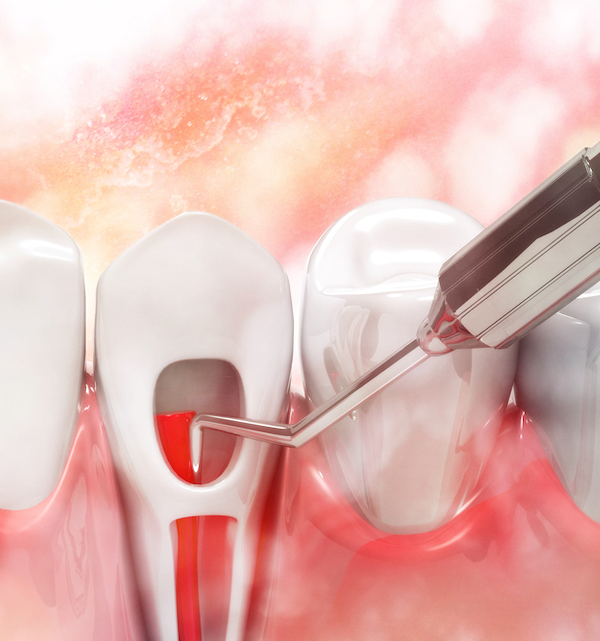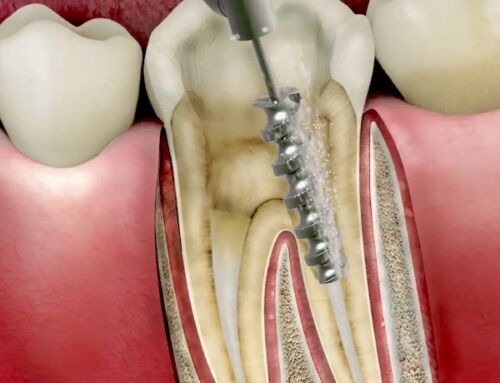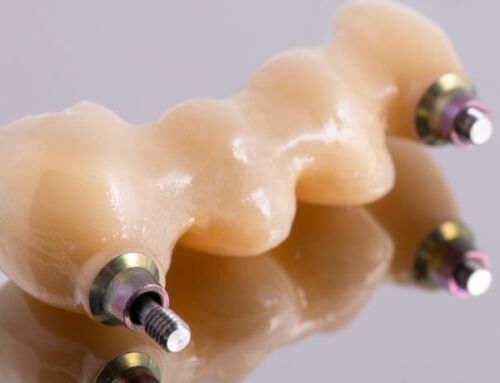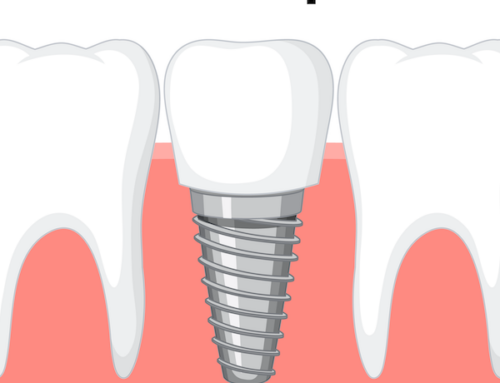If you have a decayed, damaged, or infected tooth, the ideal treatment is root canal therapy. This treatment cleans the inside of the tooth, removes infected tissue and bacteria, and restores it to optimal health. The goal is to preserve the tooth and avoid further complications that may eventually result in tooth loss.
At Chinook Dental Group, we offer specialty services in endodontics, including root canal therapy. With advanced technology, modern treatment approaches, and our experienced dental team, you can experience a relatively pain-free procedure with highly predictable and successful treatment outcomes.
What is Root Canal Therapy?
Root canal therapy is recommended if a tooth is infected or if it is too decayed or damaged and a dental filling will no longer suffice to save it. In this case, the canals are filled with bacteria that will continue to eat away the tooth, causing severe pain. To resolve this and restore the tooth to health, bacteria must be removed and the tooth must be properly cleaned.
The procedure will effectively save the tooth, ultimately preventing the consequences of possible tooth loss if left untreated.
Signs You May Need a Root Canal
Your dentist may recommend that you get a root canal if you experience the following signs and symptoms:
- Persistent toothache
- Lasting sensitivity after consuming anything hot or cold
- Tooth discolouration
- Swollen or tender gums
- Pain when chewing or biting
- Presence of a pimple or boil on the gums
Some patients may also experience swelling of the face and neck and fever if the infection has become more widespread.
Root Canal Services
There are several types of endodontic services that your dentist may recommend depending on your specific needs. This includes:
Root Canal Therapy
In a nutshell, root canal therapy saves the tooth by removing bacteria, cleaning and sealing the tooth, and restoring its form and function. This series of procedures highlights two goals which are to repair the tooth and prevent re-infection.
Not all root canal therapies are the same. Depending on the anatomy of the tooth, some have one canal, while others have up to four or more. There can also be accessory canals present which are smaller canals that may also harbour bacteria. It is important that all these areas are cleaned and sealed to ensure treatment success.
Endodontic Retreatment
A tooth that underwent root canal therapy may be reinfected if the previous procedure failed and infection is present again. This can happen due to a number of reasons such as bacteria re-entering the tooth, complex root systems, underfilled canals, and improper tooth restoration.
To help the tooth recover, it will be reopened and all existing fillings and medications must be removed. Then, the usual root canal procedure is performed where all canals are cleaned and resealed to support healing and preserve the tooth.
Root Surgery
However, not all infected teeth and endodontic retreatments can be restored with traditional root canal treatment. If there is persistent reinfection even after several retreatments, residual infection, anatomical concerns in the tooth root, or a large infection present, root surgery or apicoectomy may be recommended.
In this procedure, the tip of the root is surgically cut before the tooth is cleaned and sealed. This process will better preserve the tooth and increase the long-term success of the treatment.
Dental Trauma
A tooth that experienced traumatic injury, whether it has cracked or was accidentally pushed into or pulled out of its socket, may still be saved through root canal therapy. For as long as the attachments of the tooth to the bone is still intact, root canal therapy may be done to keep it in place.
Our Root Canal Treatment Process
If you are scheduled for a root canal treatment, here is how you can expect the procedure to be like:
- Consultation and Diagnosis
Using thorough visual inspection, X-rays, and scans, your dentist will determine the health of the tooth and extent of damage. From this, a treatment plan will be designed which will include the root canal process.
- Anaesthesia and Preparation
Then, local anaesthesia will be administered to numb the area and improve your comfort during the procedure. Once it has set in, the tooth will be opened to gain access to the infected canals, making it easier to remove the diseased tooth parts.
- Cleaning and Sealing the Root Canal
All areas of the tooth will be properly cleaned and shaped, making it ideal to receive the tooth sealant. This will effectively seal off all areas that bacteria may seep into to potentially reinfect the tooth.
- Tooth Restoration
After properly sealing all canals, the last step is to rebuild the structure and appearance of the tooth. Ideally, this is done through crown restoration because a root canal treated tooth is prone to breakage. A dental crown provides a full, protective cover on the tooth to enhance its strength and improve its aesthetics.
Why Choose Us For Root Canal Treatment?
Several reasons make Chinook Dental Group stand out among other endodontic clinics in the area, such include:
Experienced specialists and dental team
Chinook Dental Group is a multispecialty clinic that offers specialized services for endodontics and root canal therapy. Our dentists have advanced expertise and experience to deliver safe, comfortable, and successful root canal procedures.
Advanced technology for precise treatment
Our practice has invested in modern technology that provides precise diagnosis, efficient treatment plans, and future-proof and effective solutions.
Modern treatment approaches
We specialize in endodontic microsurgery, a procedure that uses microsurgical instruments and microscopes for better access and enhanced magnification. This helps treat areas that may be challenging for a traditional procedure, such as smaller canals and complex root systems.
Comprehensive care, including post-procedure follow-ups
Our goal is to keep you informed and comfortable throughout your entire endodontic journey, including post-treatment. We will schedule follow-up appointments so we can closely monitor your progress and provide treatment should there be any problem during your recovery.
Conclusion
If you experience severe toothache or see a pimple on your gums, it may be a sign that the tooth is infected and needs urgent treatment. At Chinook Dental Group, we prioritize emergency cases such as this to ensure that we can provide urgent care. After a thorough assessment, our team can determine if a root canal is best for you.
Call us today to schedule your appointment and let us get you started on your journey to save your tooth.






